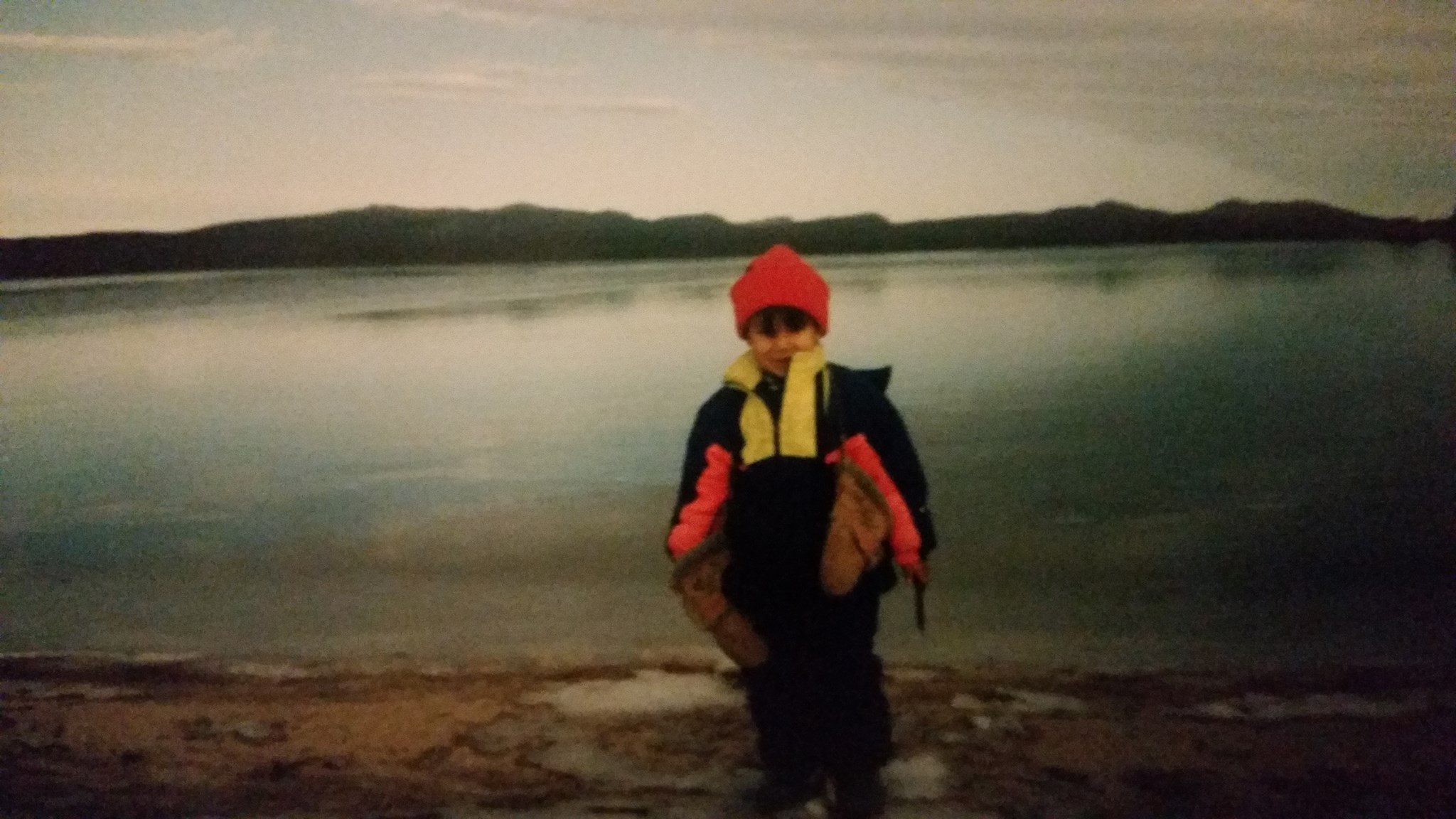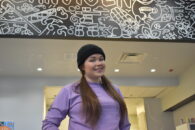On a fall morning public commute to the college, people squeeze in, filling up the bus. In a sway-like motion, passengers move simultaneously as the bus driver steps on the gas pedal and makes a turn.
A mix of fragrances rises in the recycled air: perfumes, breaths of coffee, cigarettes, and the odd hint of body odour. To dissipate their discomfort, passengers escape through their smartphones.
As I sit near the exit door in my usual spot, the heaters blow hot, dry air above my head, forcing me to close my watery eyes. In the middle of my thoughts, I hear the faintest sound of the bus driver’s radio playing “Take It Easy” by The Eagles.
My earliest childhood memory of being out on the land, back on the family trapline north of Mistassini Lake near the Otish Mountains, quickly sets in.
It takes me to mid-fall of 1992, where I lived at the main campsite with my grandparents, my aunt and two uncles on the family trapline. I am carefree, hyperactive, attention-seeking, and imaginative at five years old. Jumping from bed to bed and running around the cabin, I sing Disney songs and seem to irritate family members.
Early one morning, my grandfather and uncles leave in a green freighter canoe with an eight-horsepower Evinrude motor to check out the spring camp, about 15 kilometres upstream from the main campsite. I know they’ll be back any time before dark.
My grandma busies herself in the kitchen preparing supper and tells my aunt and me to fetch a pail of water for dishwashing. Excitedly, I jump into my winter pants, wear my jacket and ask my aunt for help putting on my winter boots.
I leave my aunt as she gets ready herself. Then, I walk towards the uneven trail leading to the bay where we usually get water for washing dishes.
I pass by the towering spruce, golden tamarack, pine and the overgrowth of shrubs narrowing down to the trail’s end where the beach just a few feet away opens the wide bay. Then, a wishkichaanish (gray jay) perched on top of a tree looks in my direction and flies away back towards the cabin.
The synchronized rippling of the waves calms me down, and in front of me, I see the sun illuminating the giant fluffy snowflakes disappearing on the dark water and making it even more quiet and still.
Waiting for my aunt, I sit down where the abundance of Labrador tea grows and continue looking at the horizon alone. The sharp autumn smell fills the air as the rotting plants and leaves take over. Sitting there, I take one leaf of the stringy Labrador tea, put it in my mouth and chew.
As the light dims, I hear my aunt call my name: “Steph!” The aluminum pail brushes along the overgrowth. I face northward to the Otish Mountain chain, jump back to the open beach, and run to my aunt.
My aunt starts running towards the spot we get water from, at the right side of the bay, where boulders were pushed by ice long ago. Then, with bursts of laughter, we start collecting water together, and I insist on holding the pail.
This place and time make me feel content. I help around the camp and it gives me a sense of belonging.
Just hearing a song, I am taken back to this time living with my grandparents, aunt and uncles, and being out on the land.
En route to school in the here and now, the bus crosses the Portage Bridge heading to downtown Ottawa, which I often avoid because of the crowds. There are moments when I don’t mind the hour-and-a-half travel time from where I live in Gatineau to get to Algonquin College. Moments like these allow me to be annoyed enough to become even more patient, but mostly, to reminisce about my favourite place, the trapline.


